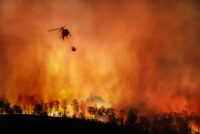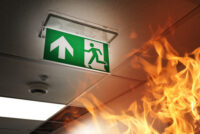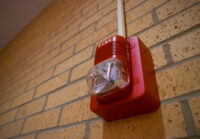Back to Basics: Emergency Exits and Keeping the Way Out Clear
Back to Basics is an article series that highlights important, but possibly overlooked, information facilities management professionals should know. During a fire or another emergency, your employees need a clear exit route and clearly marked and unlocked exit doors. Your employees’ exit route must remain unobstructed by equipment or stored items, and employees must be […]










